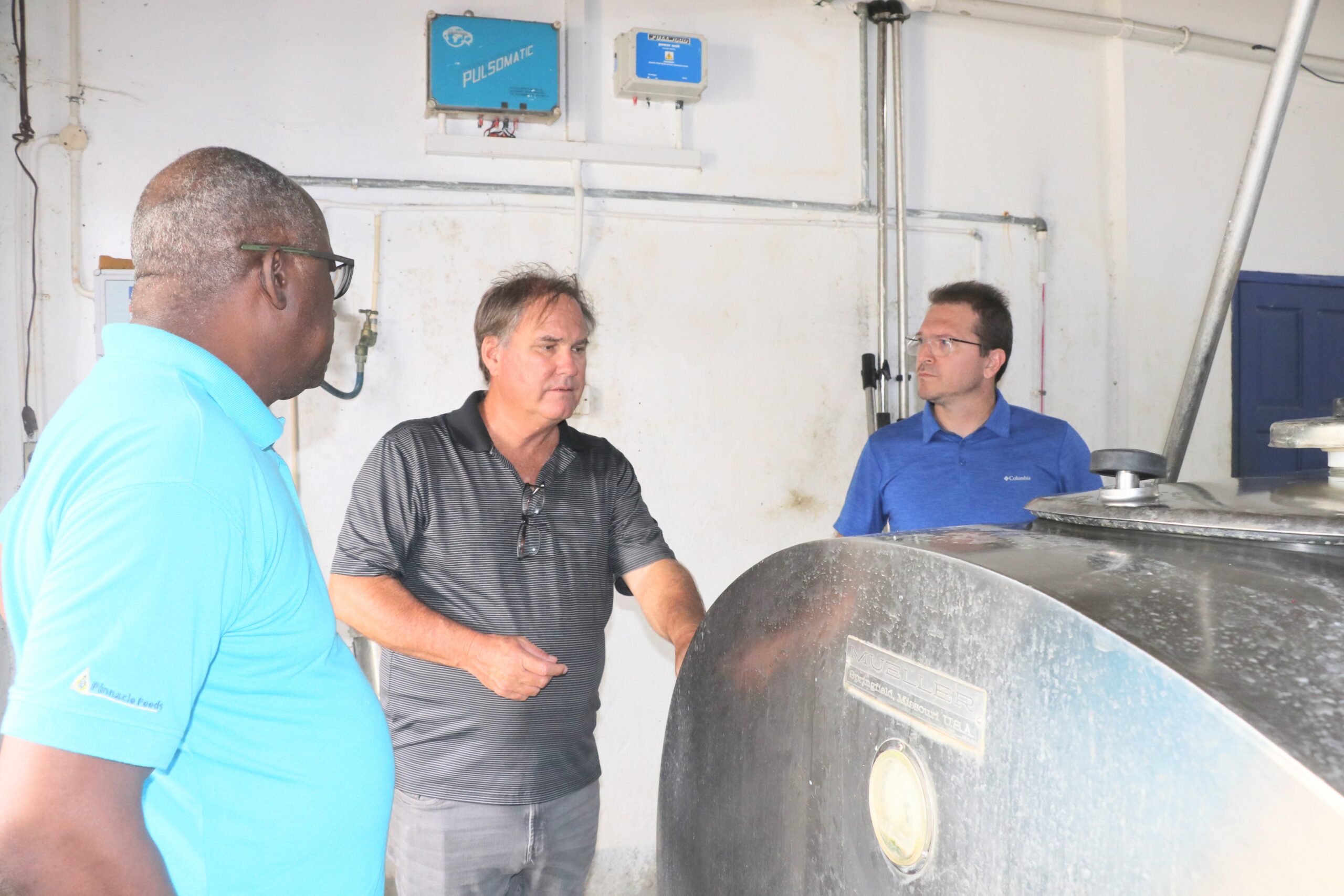Increasing Dairy Production in Barbados: Costa Rican Vet Urges Investment in Farm Equipment for Dry Season Challenges

May 9, 2024
Costa Rican vet Dr Esteban Mata Paniagua advocates for farm equipment investment to boost dairy production in Barbados, particularly during the dry season. Recommendations include enhancing cattle feeding methods and utilizing silage.
A visiting Costa Rican veterinary expert has called for investment in farm equipment to increase dairy production, especially during the dry season when grass is scarce.
Dr Esteban Mata Paniagua, a prominent vet specialising in dairy production, made the observation after touring several farms across the island. His visit aimed to “improve the dairy industry in Barbados and advise on things being done in Costa Rica to improve milk production and quality,” he said.
With the dry season and extreme heat slowing down milk production, the vet’s call comes amid a rising sense of urgency to implement measures swiftly and speed up the flow of the government’s promised financial aid to farmers.
“We are detecting some opportunities that we can improve,” Dr Paniagua said at Ashford Plantation in St John. “Over the last few visits I have made, I noticed we have an opportunity to improve the way we are feeding the cattle, and that’s maybe because we are in a dry season where there isn’t enough grass, which is a very important thing.”
To address this challenge, Dr Paniagua suggested investing in equipment that could support the production of silage, a stable alternative feed source during less fertile months.
Paniagua’s visit was facilitated by sole feed importer Pinnacle Feeds Limited. Tara Jean- Pierre, the firm’s commercial and farm services supervisor, said the company aims to host various consultants and experts throughout the year to share insights and develop Barbados’ dairy capabilities.
This initiative is intended to back up recent government efforts to support dairy producers, including rebates on hay and silage equipment as outlined in this year’s budget to stem a falloff in milk production.
Ashford plantation owner Brian Allan, vice president of the Dairy and Beef Producers Association, confirmed that farmers are facing difficulties in cattle feeding during the dry season. He said the governmental support “will be a tremendous help” as he expressed hope that the promised financial aid will be executed promptly.
The Chief Executive Officer of the Barbados Agricultural Society (BAS) James Paul underscored the urgency of deploying solutions swiftly owing to the critical cash flow challenges facing farmers. He revealed plans to enhance facilities in preparation for the importation of 214 in-calf heifers in the coming months, aiming to significantly boost milk production.
Paul said: “We need to be able to ensure that whatever benefits come, that they come quickly because right now our milk production is around three million kilogrammes and we would like to get it back up to the days when it was around six million kilogrammes and up, but this is not going to happen unless we make the necessary investment in capital and equipment that is required now.”
He also highlighted the importance of improving forage quality and content.
“If you can up the content and quality of forages you can see that you’re actually adding more in terms of foreign exchange earnings because you’re not relying much on imported content,” the BAS boss said.
The calls for investment and support come as Barbados aims to revive its dairy industry, which has declined from around six million kilogrammes in previous years to the current level of around three million kilogrammes annually.
Dairy farmers have long grappled with challenges such as the high cost of feed and equipment, as well as the impact of drought conditions on grass availability, which have hampered their ability to maintain and increase milk yields.
The government’s budget initiatives, including rebates on hay and silage equipment, were immediately welcomed by the dairy industry as a step in the right direction towards addressing these longstanding issues.
But according to Dr Paniagua, substantial investment in modern farming equipment and infrastructure will be crucial to boosting productivity and ensuring the dairy industry’s sustainability.


